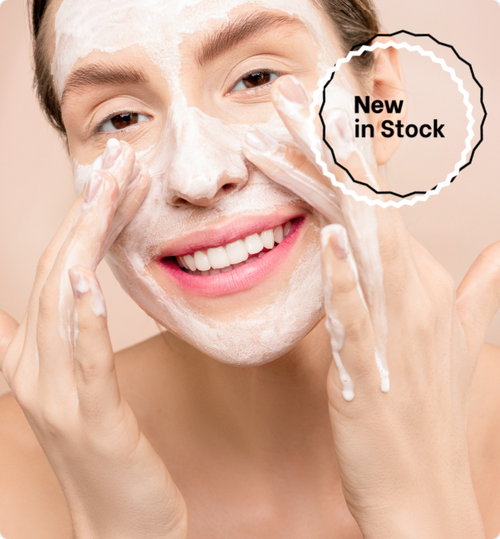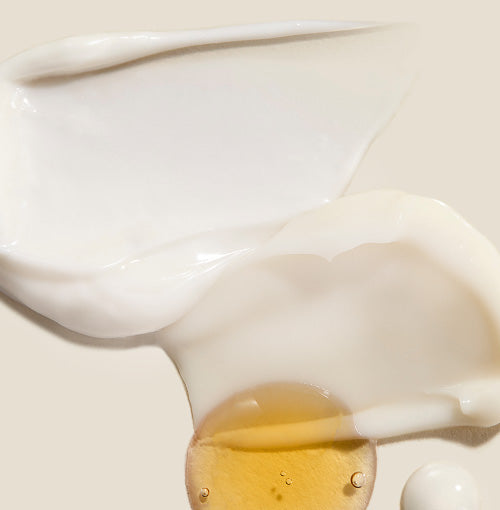What are Free Radicals and How to Protect Your Skin
Free radicals are molecules that have unpaired electrons, making them highly reactive and unstable. These molecules can cause damage to cells, proteins, and DNA, contributing to the development of chronic diseases and aging.
In this skincare blog, we explore everything about free radicals and how they relate to the health of our skin, including how they can damage the skin and how to protect your skin from their harmful effects.
What are free radicals?
Free radicals are highly reactive molecules that have one or more unpaired electrons. This makes them unstable and eager to find other electrons to pair with. In this quest, they can cause damage to cells, proteins, and DNA, leading to various health problems. It is usual for our bodies to produce free radicals during metabolic processes. However, they can also be introduced from external sources. This is where the problem lies; we are exposed to an overabundance of free radicals from unnatural sources such as pollution, radiation, and certain foods.
Are free radicals harmful?
Excessive amounts of free radicals can cause harm when they accumulate in the body and cause oxidative stress. This can damage cells, proteins, and DNA, which contributes to the development of chronic diseases and even cancers. Free radicals can also contribute to aging by damaging collagen, a protein that keeps skin looking youthful and firm.
How do free radicals affect the skin?
Free radicals can affect the skin in various ways, including:
- Damaging collagen: Collagen is a protein that keeps skin youthful and firm. Free radicals can damage collagen, leading to fine lines, wrinkles, and sagging skin.
- Causing hyperpigmentation: Free radicals can cause an overproduction of melanin, leading to dark spots and uneven skin tone.
- Depleting antioxidants: Antioxidants are molecules that neutralize free radicals. Too many free radicals in the body deplete the skin's antioxidant supply, making it more vulnerable to damage.
- Causing inflammation: Free radicals can cause inflammation, contributing to the development of acne, eczema, and other skin conditions.
Common sources of free radicals
Free radicals are found naturally in the body, created during our normal metabolic processes. However, they can also be introduced from external sources, including:
- Pollution: Air pollution, such as exhaust fumes, can produce free radicals in the body.
- Radiation: Ultraviolet (UV) radiation from the sun and radiation from X-rays and other sources can produce free radicals.
- Smoking: Cigarette smoke contains many chemicals that produce free radicals in the body.
- Fried and processed foods: Fried and processed foods can contain chemicals that produce free radicals when heated.
- Pesticides: Some pesticides contain chemicals that can produce free radicals in the body.
- Blue Light from Electronics: Phones, tablets, laptops, and other electronics do not produce free radicals, but they can emit radiation through blue light that can cause oxidative stress in the skin. This oxidative stress can produce free radicals, which can contribute to skin aging and damage, such as wrinkles and discoloration.
How to prevent free radical damage to your skin
While it is not possible to avoid free radicals altogether, there are several steps you can take to reduce your exposure and protect your skin from their harmful effects:
- Use sunscreen: UV radiation from the sun is a significant source of free radicals that can damage the skin. Protecting from UV rays can help if you use a minimum of SPF 30 UVA and UVB sun protection.
- Use blue-light-blocking screen protectors and glasses and limit your screen time.
- Avoid smoking: Smoking is a major source of free radicals and can cause.
- Eat a healthy diet: Antioxidants are crucial in preventing free radical damage. Choose healthy nuts, fruits, vegetables, and whole grains high in antioxidants.
- Use skincare products that contain antioxidants: Antioxidants can help to neutralize free radicals on the skin, which can help to prevent damage and aging. Look for products containing vitamins C and E and other antioxidants, such as green tea and resveratrol.







Dejar un comentario